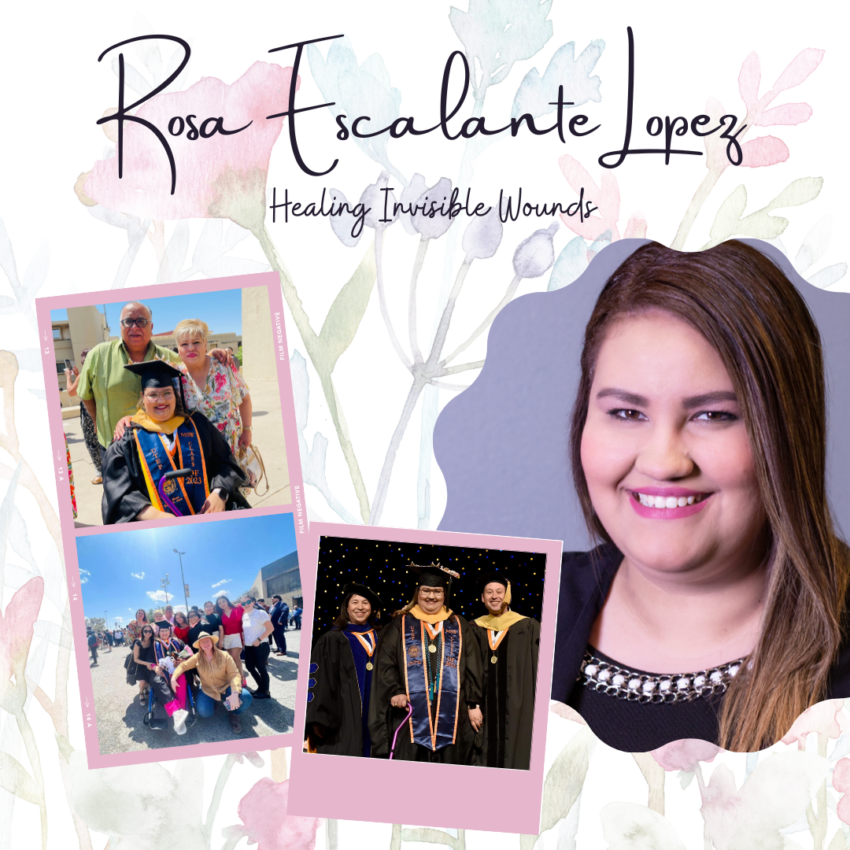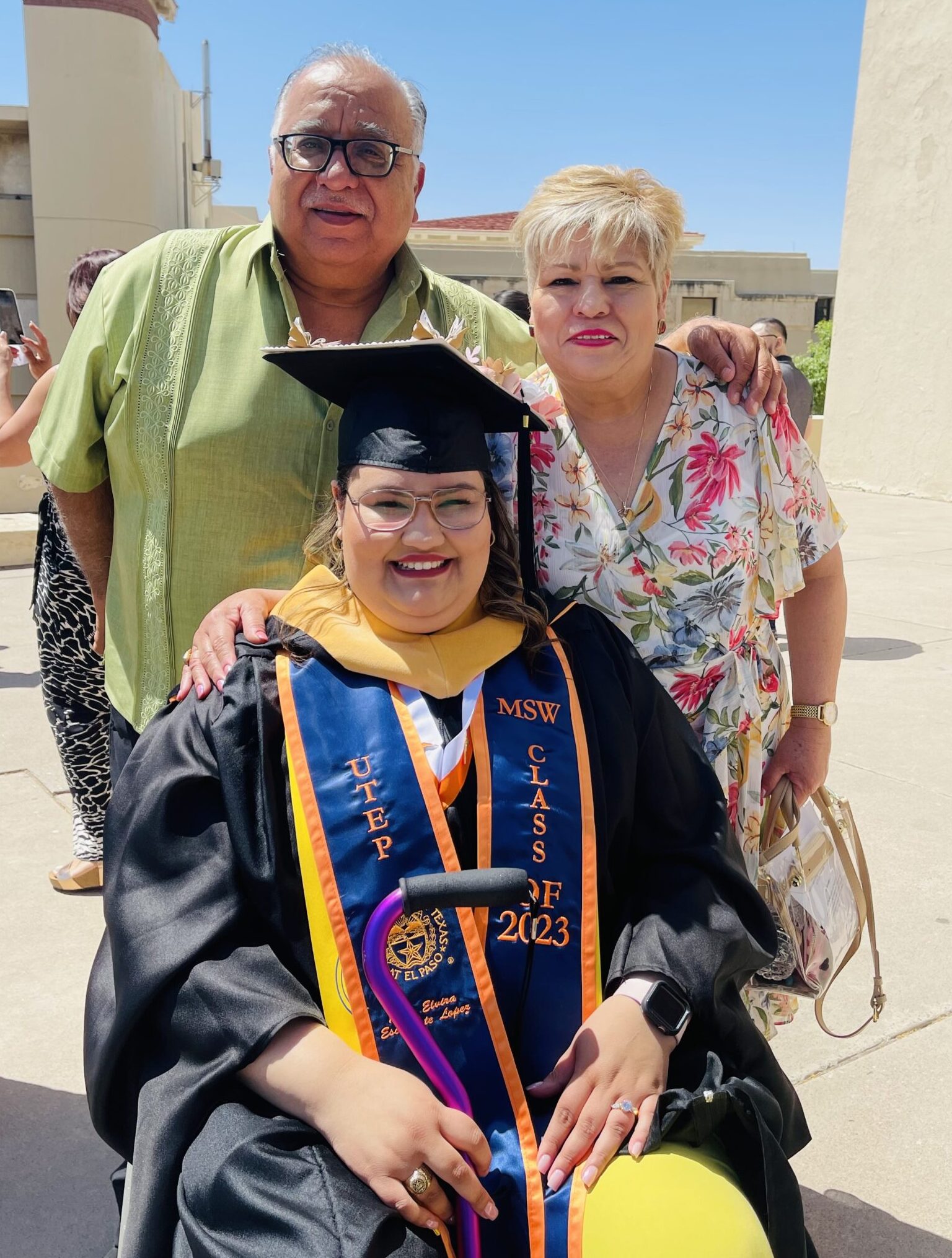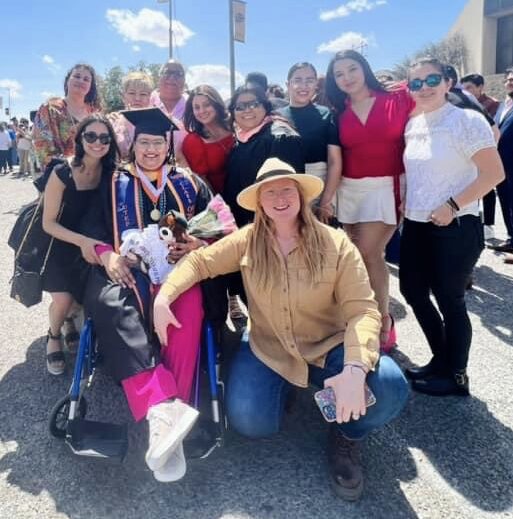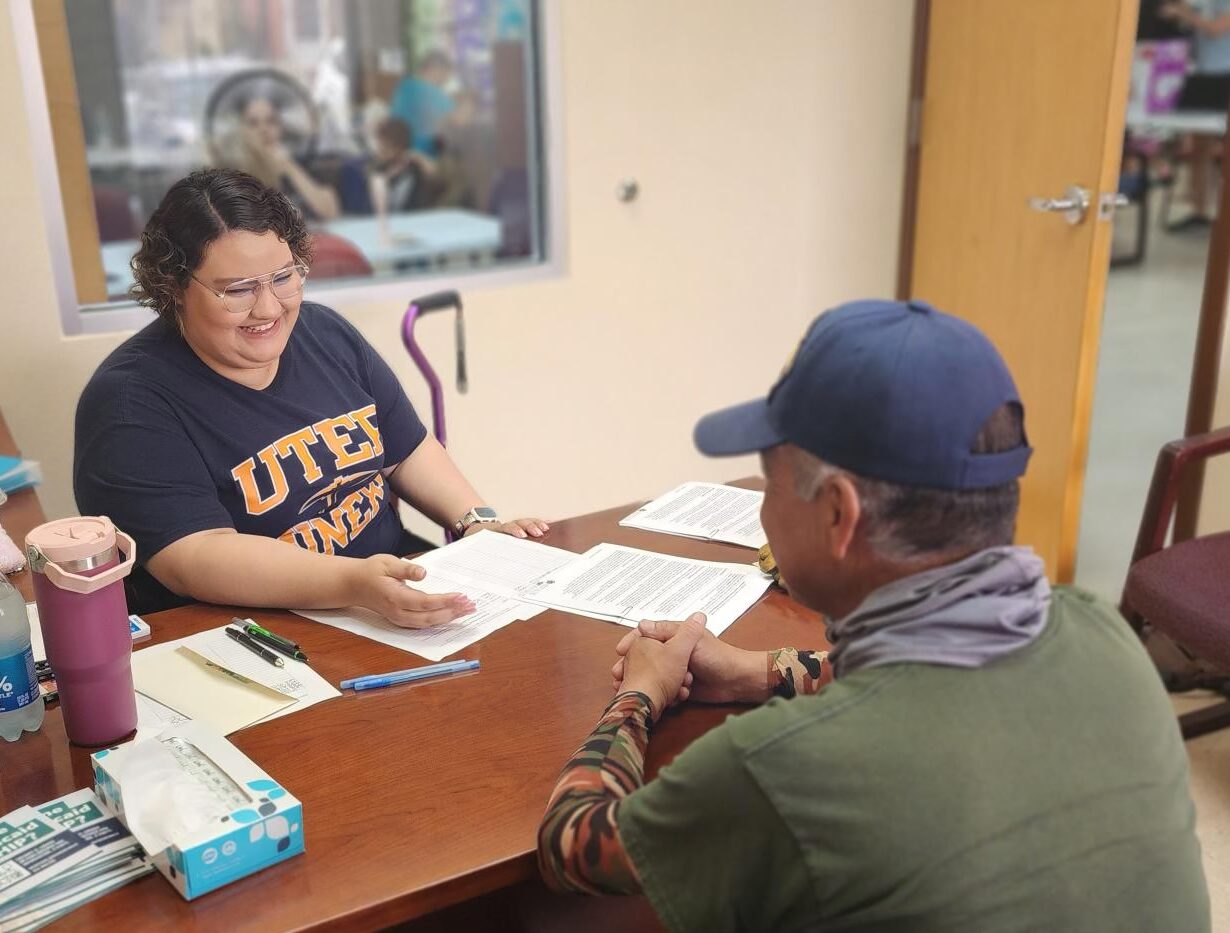
Share On Social!
A young Rosa Escalante Lopez curiously looked around the therapist’s room as her mother and the therapist chatted in Spanish.
“The elementary school thinks she may have a learning disability,” Rosa’s mother said. “She’s struggling in math.”
“According to my evaluation, your daughter is developing normally,” the therapist said with a smile. “She can continue to the next grade; she may just need extra tutoring in her math class.”

As the two continued to talk, Rosa reflected on her session with the therapist. She was fascinated with the idea of helping people heal a wound that may not be visible, such as a learning disability or a mental health condition.
“In my last year of elementary school, I remember thinking, ‘I’m going to be a psychologist and I want to provide therapy,’” a now grown Rosa recalled.
While her career path has since changed, Rosa is still well on her way to helping people, especially Latinos, cope with and heal their invisible wounds.
Having recently completed her master’s degree in social work from the University of Texas at El Paso (UTEP), Rosa is now pursuing a PhD in the Interdisciplinary Health Sciences program at UTEP.
However, her journey to finding her calling was full of mental and physical challenges, including a life-altering health crisis from which she’s still recovering.
The Calm Before the Storm
Although Rosa grew up in El Paso, Texas, she was born in Mexico and attended grade school in Mexico.
Both of her parents were teachers in Mexico, and they expected her to excel in school.
“It was very engraved in my [background] and in my family – you have to go to college,” Rosa said.
So, despite never having attended school in the United States before, she finished grade school in Mexico and started her college career in 2013 at UTEP.
In line with her childhood interests, she took classes in psychology and nursing before finding the health promotion undergraduate program in UTEP’s College of Health Sciences.
There, she was introduced to research, “which I really enjoyed,” Rosa said. She went on to earn her bachelor’s degree in health promotion with a minor in community health in May of 2019.
Although she couldn’t afford to go to graduate school right away, Rosa set herself a goal to enroll in the master’s program in social work at UTEP the following year. She was determined to continue exploring her passion for research.
Sure enough, she began the master’s program in the early stages of the COVID-19 pandemic in 2020.
“At the time, I was working for a nonprofit organization that provides services for substance use disorder and opiate use disorder in rural communities,” Rosa explained. “So, I came into the program with that focus area in mind. But life happens and things change fast.”
‘A Horrible Dream’
Just before starting her master’s program, Rosa was in a car accident that caused four spinal disc herniations.
She was told the herniations wouldn’t affect her health, but that was not the case.

One morning, Rosa woke up and felt an unnatural feeling in her legs. By 5 PM that afternoon, she couldn’t walk anymore.
“My doctors explained to me that my herniations were pressing on my spinal cord and that’s why I couldn’t walk. Unfortunately, I had to spend 3 months in a wheelchair,” Rosa said.
By this time, she was in the middle of her master’s program. Times were rough.
“I remember looking at myself in the mirror in the wheelchair saying, ‘This is just a horrible dream. You’re going to wake up tomorrow and everything is going to be fine.’”
But the nightmare continued as Rosa’s physical and mental health worsened.
“I was very depressed because I lost my independence,” Rosa said. “I couldn’t cook or drive. I couldn’t even get out of my house on my own.”
The pain was also unbearable.
Luckily, Rosa found a doctor she trusted in Mexico and underwent back surgery in December of 2021.
Now, she’s learning how to walk again.
“It’s so hard. I have to retrain my body to move in certain ways because I might fall to the ground,” Rosa said. “It’s a learning process and it’s still very draining mentally and emotionally.”
The Light at the End of the Tunnel
Understandably, Rosa’s disability journey made her preexisting anxiety and new symptoms of depression “go through the roof.”
She started going to therapy through UTEP’s counseling center in January 2023 and calls it one of the best decisions she’s ever made.

That doesn’t mean the decision to go to therapy was easy, though.
Because of the Latino background Rosa grew up in, accepting help for her mental health was hard – even though she had helped other Latinos overcome mental health challenges of their own.
“I think my [background] teaches people to hide feelings and push them down,” she said. “You have to be strong, and you have to keep moving forward. Then, when you reach your limit, you just explode.”
Unfortunately, Rosa’s experience prolonging mental health treatment isn’t an anomaly. Data shows that Latinos and other people from overlooked populations are less likely to seek treatment for mental illnesses than white people.

Despite these exhausting challenges, Rosa received her master’s degree in social work in May of 2023.
She attributes her success to the support of her counselor, family, friends, department, and her mentor, Dr. Jason Mallonee, assistant professor of social work at UTEP.
As Rosa continues to heal and accept her diagnosis, she is more motivated than ever to continue her studies in UTEP’s Interdisciplinary Health Sciences PhD program in fall 2023.
She hopes to focus her studies on the mental health of people with physical and mental challenges and provide mental health support for their respective caregivers, a field she describes as “very needed.”
Mental Health Along the US-Mexico Border
Beyond her lived experience, Rosa is well-equipped to achieve her goals.
During her master’s program, she played a vital role in collecting data for a focus group study led by Dr. Mallonee.
The study, published in Frontiers in Public Health, explored mental health disparities among El Paso Latinos and the challenges they face in seeking mental health treatment.
In line with other research, the study results pointed heavily to the stigma surrounding mental health in the Latino community.
Common beliefs about seeking mental health treatment expressed by Latino study participants included:
“In the Latino community, everyone refuses to see a psychologist because they are not crazy…”
“When they hear mental illness, they already think they have a bad brain.”
“Something very taboo, something that is not needed if you are a man. You are a man and you do not need help so they can control your mind.”
“Shame, fear, rejection, or that people will say or speak ill of me…”
Another part of improving Latino mental health is addressing challenges related to the non-medical drivers of health (NMDoH), or the conditions in which we are born, grow, live, work, and age.
For instance, Latino study participants expressed frustration with the lack of accessibility to mental health providers in their area.
“It would take them months to see a healthcare provider that took their type of insurance,” Rosa said. “One of the participants also mentioned how he was constantly changing therapists because his providers were medical students. So, every year or every semester, they would assign him a new student therapist. He was back at square one after months of work.”
Although Rosa knew that NMDoH played a role in health outcomes, she was surprised just how much a person’s lived environment can impact their overall health.
For example, during the COVID-19 pandemic, many Latinos lost their jobs.
As a result, they struggled to afford necessities and lost health insurance coverage. These events, on top of the general stress associated with a pandemic, led to increased symptoms of anxiety and depression.
“Dr. Mallonee would tell me, ‘You’ll see how everything is intertwined,’” Rosa explained. “The more conversations I had with participants, the more I saw it.”
A Sustainable Impact on the Future
Thanks to the valuable data gathered by students like Rosa, Dr. Mallonee has kicked off an evidence-based mental health program in El Paso called “Pensamientos y Platicas” or “Thoughts and Talks.”
UTEP social work students facilitate the four-week program to normalize conversations around mental health.

The program also aims to help those with mental health conditions cope and create a plan to manage their condition and seek treatment when needed.
Most notably, the program will include bilingual services and resources to best serve El Paso Latinos and all people.
Rosa and Dr. Mallonee are excited to see the program’s impact, and they also look forward to working together throughout Rosa’s PhD studies.
“Rosa’s work and contributions to this project have been instrumental since day one,” Dr. Mallonee said. “I’m grateful I’ll get to continue working with her for the next few years.”
Rosa is no stranger to hardship, yet she’s stronger than ever before.
By sharing her personal story and staying committed to her work, she’s making a profound impact on the Latino community every day.
“I try to put my story out there as much as I can, and if it helps somebody, that makes my day,” Rosa said.
Explore More:
Mental HealthBy The Numbers
142
Percent
Expected rise in Latino cancer cases in coming years
This success story was produced by Salud America! with support from the Robert Wood Johnson Foundation.
The stories are intended for educational and informative purposes. References to specific policymakers, individuals, schools, policies, or companies have been included solely to advance these purposes and do not constitute an endorsement, sponsorship, or recommendation. Stories are based on and told by real community members and are the opinions and views of the individuals whose stories are told. Organization and activities described were not supported by Salud America! or the Robert Wood Johnson Foundation and do not necessarily represent the views of Salud America! or the Robert Wood Johnson Foundation.



